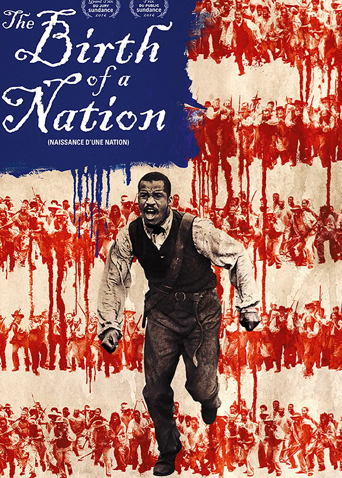不打官司好多年的哈佛大学法律系知名教授Paul Armstrong(Sean Connery)这日收到一封鸣冤信:国产观佛罗里达州一名女孩被人绑架谋杀,国产观警方将黑人大学生Bobby(Blair Underwood)视作凶手,并在缉拿后严刑逼供令其签字画押,前途光明的年轻人只因是黑人变作死囚。Paul被信件打动,决定重出江湖为Bobby辩护。一番缜密调查,Paul找到足以还Bobby清白之躯的证据,但他没有想到,一切均系Bobby的精心策划,自己及家人才是他的真正目标。

不打官司好多年的哈佛大学法律系知名教授Paul Armstrong(Sean Connery)这日收到一封鸣冤信:国产观佛罗里达州一名女孩被人绑架谋杀,国产观警方将黑人大学生Bobby(Blair Underwood)视作凶手,并在缉拿后严刑逼供令其签字画押,前途光明的年轻人只因是黑人变作死囚。Paul被信件打动,决定重出江湖为Bobby辩护。一番缜密调查,Paul找到足以还Bobby清白之躯的证据,但他没有想到,一切均系Bobby的精心策划,自己及家人才是他的真正目标。
回复 :当真相铺天盖地而来,令人根本无法接受的时候,吉尔比发现自己早已陷入了一个错综复杂的谎言网无法脱身。当真相铺天盖地而来,令人根本无法接受的时候,吉尔比发现自己早已陷入了一个错综复杂的谎言网无法脱身。
回复 :Somewhere in the remote region, the war ends. In the midst of ruined cities and houses in the streets, in rural hamlets, everywhere where people still live, are children who have lost their homes and parents. Abandoned, hungry, and in rags, defenseless and humiliated, they wander through the world. Hunger drives them. Little streams of orphans merge into a river which rushes forward and submerges everything in its path. The children do not know any feeling; they know only the world of their enemies. They fight, steal, struggle for a mouthful of food, and violence is merely a means to get it. A gang led by Cahoun finds a refuge in an abandoned castle and encounters an old composer who has voluntarily retired into solitude from a world of hatred, treason, and crime. How can they find a common ground, how can they become mutual friends? The castle becomes their hiding place but possibly it will also be their first home which they may organize and must defend. But even for this, the price will be very high.To this simple story, the journalist, writer, poet, scriptwriter, movie director, and film theoretician Béla Balázs applied many years of experience. He and the director Géza Radványi created a work which opened a new postwar chapter in Hungarian film. Surprisingly, this film has not lost any of its impact over the years, especially on a profound philosophical level. That is to say, it is not merely a movie about war; it is not important in what location and in what period of time it takes place. It is a story outside of time about the joyless fate of children who pay dearly for the cruel war games of adults.At the time it was premiered, the movie was enthusiastically received by the critics. The main roles were taken by streetwise boys of a children's group who created their roles improvisationally in close contact with a few professional actors, and in the children's acting their own fresh experience of war's turmoil appears to be reflected. At the same time, their performance fits admirably into the mosaic of a very complex movie language. Balázs's influence revealed itself, above all, in the introductory sequences: an air raid on an amusement park, seen in a montage of dramatic situations evoking the last spasms of war, where, undoubtedly, we discern the influence of classical Soviet cinematography. Shooting, the boy's escape, the locomotive's wheels, the shadows of soldiers with submachine guns, the sound of a whistle—the images are linked together in abrupt sequences in which varying shots and expressive sharp sounds are emphasized. A perfectly planned screenplay avoided all elements of sentimentality, time-worn stereotypes of wronged children, romanticism and cheap simplification. The authors succeeded in bridging the perilous dramatic abyss of the metamorphosis of a children's community. Their telling of the story (the scene of pillaging, the assault on the castle, etc) independently introduced some neorealist elements which, at that time, were being propagated in Italy by De Sica, Rossellini, and other film artists. The rebukes of contemporary critics, who called attention to "formalism for its own sake" have been forgotten. The masterly art of cameraman Barnabás Hegyi gives vitality to the poetic images. His angle shots of the children, his composition of scenes in the castle interior, are a living document of the times, and underline the atmosphere and the characters of the protagonists. The success of the picture was also enhanced by the musical art of composer Dénes Buday who, in tense situations, inserted the theme of the Marseilaise into the movie's structure, as a motive of community unification, as an expression of friendship and the possibility of understanding.Valahol Europaban is the first significant postwar Hungarian film. It originated in a relaxed atmosphere, replete with joy and euphoria, and it includes these elements in order to demonstrate the strength of humanism, tolerance, and friendship. It represents a general condemnation of war anywhere in the world, in any form.
回复 :宇宙中T星球上,一长者正在教诲一位年轻的姑娘,说她已染上了一种叫“爱情”的病毒,必须到地球上去体验人类的爱情,明白了它的虚幻,心灵才能恢复平静。并说她在地球上的名字叫冰儿,她见到的第一个男人就是她的爱人。 地球上,剧场里正在举行著名红歌星艾咪的独唱音乐会,她的崇拜者秦亮正等在门外渴望见上她一面。一道光柱射在艾咪的海报上,艾咪走下来,原来是T星球上的冰儿来到了地球。 冰儿随秦亮到家,告诉他自己的由来,并说爱他,希望与他做夫妻。秦亮把她的话当作疯话,可冰儿坚决不离开他,帮助他整理房间,并上街卖花挣钱资助他写歌,甚至听不进长者的警告,将关系自己生命的魔戒戴在秦亮手上……
